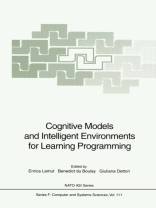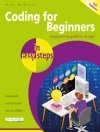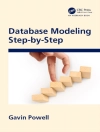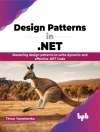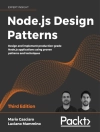At present, there is a general consensus on the nature oflearning programming, but there are different opinions onwhat forms an effective environment for it. It is generallyrecognized that the development of a mental model is aformidable task for the student and that learningprogramming is a complex activity that depends heavily onmetacognitive skills. This book, based on a NATO workshop, presents both purecognitive models and experimental learning environments, anddiscusses what characteristics can make a learning modeleffective, especially in relation to the learningenvironment (natural or computerized). The papers covercognitive models related to different aspects ofprogramming, classes of learners, and types of environment, and are organized in three groups: theoretical and empiricalstudies on understanding programming, environments forlearning programming, and learning programming in schoolenvironments. Comprehension, design, construction, testing, debugging, andverification are recognized as interdependent skills, whichrequire complicated analysis and may develop independently, and indifferent orders, in novices. This book shows thatthere is unlikely to be asingle path from novice to expertand that the structure of the final product (the program)may not constrain the process by which it comes into beingas much as some would advocate.
Giuliana Dettori & Benedict DuBoulay
Cognitive Models and Intelligent Environments for Learning Programming [PDF ebook]
Cognitive Models and Intelligent Environments for Learning Programming [PDF ebook]
Dieses Ebook kaufen – und ein weitere GRATIS erhalten!
Sprache Englisch ● Format PDF ● ISBN 9783662113349 ● Herausgeber Giuliana Dettori & Benedict DuBoulay ● Verlag Springer Berlin Heidelberg ● Erscheinungsjahr 2013 ● herunterladbar 3 mal ● Währung EUR ● ID 6385877 ● Kopierschutz Adobe DRM
erfordert DRM-fähige Lesetechnologie
